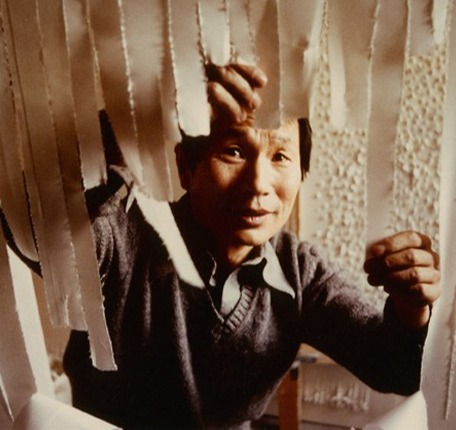
Kwon Young-woo
Kwon Young-woo was a Korean abstract artist who played a significant role in the development of modern Korean art. He was known for his innovative use of traditional Korean mulberry paper (kanji) as a medium in his artworks.
Born in Kwangju, South Korea, Kwon studied painting at the Tokyo University of the Arts in Japan during World War II. He returned to Korea in 1953 and began teaching at Hongik University in Seoul, where he became a professor and taught for many years.
In the 1960s, Kwon began experimenting with hanji, a paper made from the inner bark of the mulberry tree, which he used to create three-dimensional artworks. He would crumple, twist, and layer the paper, creating a variety of textures and shapes, which he then combined to form larger compositions. His work helped to establish hanji as a medium in contemporary Korean art.
Kwon's work was also influenced by traditional Korean art and calligraphy, as well as by modernist abstraction. He often used simple geometric forms and lines to create abstract compositions that emphasized the materiality of the paper.
In addition to his work as an artist, Kwon was also an important figure in the Korean art world, serving as a founding member of the Korean Art Critics Association and as a member of the advisory committee for the National Museum of Modern and Contemporary Art in Korea.
Kwon's legacy continues to be celebrated in Korea and internationally, and his work is held in collections at major museums, including the National Museum of Modern and Contemporary Art in Korea, the Museum of Fine Arts in Boston, and the Guggenheim Museum in New York.
Years:
Born in 1926
Country:
South Korea, Liwon, Hamgyeongnam-do